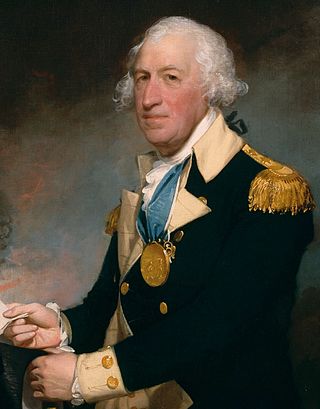
Horatio Lloyd Gates was a British-born American army officer who served as a general in the Continental Army during the early years of the Revolutionary War. He took credit for the American victory in the Battles of Saratoga (1777) – a matter of contemporary and historical controversy – and was blamed for the defeat at the Battle of Camden in 1780. Gates has been described as "one of the Revolution's most controversial military figures" because of his role in the Conway Cabal, which attempted to discredit and replace General George Washington; the battle at Saratoga; and his actions during and after his defeat at Camden.

An adjutant general is a military chief administrative officer.

Joseph Plumb Martin was a soldier in the Connecticut Militia and Continental Army during the American Revolutionary War, and was mustered out as a 23-year-old Sergeant in a Sapper company. His published narrative of his experiences, re-discovered in the 1950s, has become a valuable resource for historians in understanding the conditions of a common soldier of that era, as well as the battles in which Martin participated.

Joseph Reed was a Founding Father of the United States and a lawyer, military officer, and statesman of the American Revolutionary Era who lived the majority of his life in Pennsylvania. He served as a delegate to the Continental Congress and, while in Congress, signed the Articles of Confederation. He also served as President of Pennsylvania's Supreme Executive Council, during the American Revolutionary War, a position analogous to the modern office of Governor.
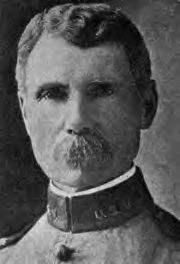
Theodore Schwan was a Union Army officer during the American Civil War who received the Medal of Honor for his actions at the Battle of Peebles' Farm. He also served with distinction during the Spanish–American and Philippine–American Wars.

Edward Martin was an American lawyer and Republican party politician from Waynesburg, Pennsylvania. He served as the 32nd governor of Pennsylvania from 1943 until 1947 and as a United States Senator from Pennsylvania from 1947 until 1959.
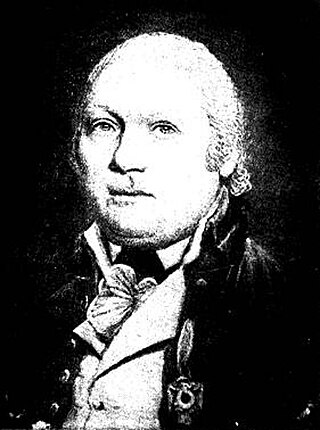
David Ziegler was a German immigrant to the United States who served in the U.S. military and became the first mayor of Cincinnati, Ohio.

The Black Brigade of Cincinnati was a military unit of African-American soldiers, that was organized in 1862 during the American Civil War, when the city of Cincinnati, Ohio, was in danger of being attacked, by the Confederate Army. The members of the Cincinnati "Black Brigade" were among the first African Americans to be employed in the military defense of the Union. The fortifications—including forts, miles of military roads, miles of rifle pits, magazines, and hundreds of acres of cleared forests—at the border of Northern Kentucky thwarted the major threat to Cincinnati during the Civil War.
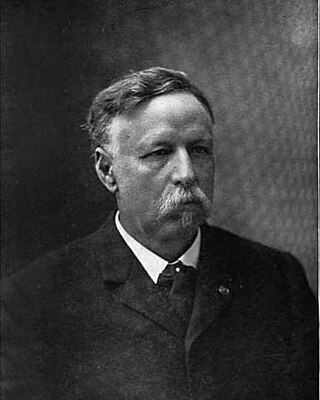
John Peter Shindel Gobin was an American politician from Pennsylvania who served as an officer in the Union Army during the Civil War, as a member of the Pennsylvania State Senate for the 17th district from 1885 to 1898 and as the seventh lieutenant governor of Pennsylvania.
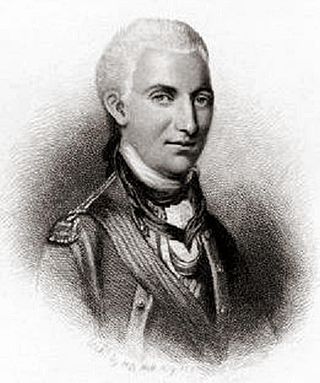
Hans Christian Febiger was an American Revolutionary War commander, confidant of General George Washington, and original member of the Society of the Cincinnati. Known by the moniker "Old Denmark", Febiger also served as treasurer of Pennsylvania from November 13, 1789, until his death.

The Battle of Iron Works Hill, also known as the Battle of Mount Holly, was a series of minor skirmishes that took place on December 22 and 23, 1776, during the American Revolutionary War. They took place in Mount Holly, New Jersey, between an American force mostly composed of colonial militia under Colonel Samuel Griffin and a force of 2,000 Hessians and British regulars under Carl von Donop.
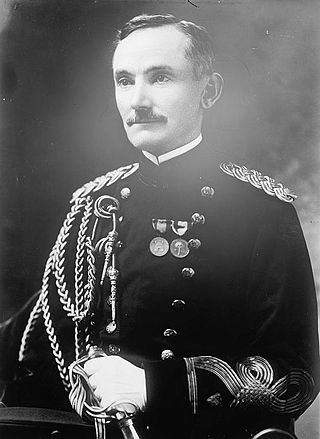
Major General Henry Pinckney McCain was an officer in the United States Army who served as Adjutant General of the Army from 1914 to 1918.
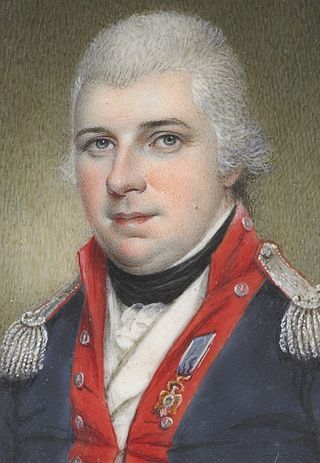
Thomas Humphrey Cushing was an officer in the Continental Army, and later the United States Army. A veteran of the American Revolutionary War and the War of 1812, he attained the rank of brigadier general. He later served as collector of customs for the Port of New London, Connecticut.
Michael Rudolph (1758–1795), an officer in the United States Army, served as acting Adjutant General and acting Inspector General of the U.S. Army in 1793.

Edward Butler was an officer in the United States Army who served as acting Adjutant General and acting Inspector General of the U.S. Army from 1793 to 1794 and from 1796 to 1797.
Jonathan Haskell was an officer in the United States Army who served as acting Adjutant General and acting Inspector General of the U.S. Army in 1796. After the war he returned to farm in Belpre, Ohio.

John Pratt was an officer in the United States Army who served as acting Adjutant General of the U.S. Army from 1790 to 1791.
John Mills was an officer in the United States Army who served as acting Adjutant General and acting Inspector General of the U.S. Army from 1794 to 1796.
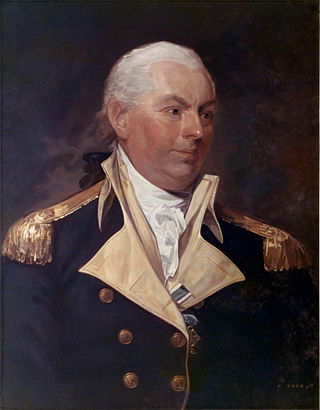
John Barry was an Irish-born American naval officer who served in the Continental Navy during the American Revolutionary War and in the United States Navy during the Quasi-War. He has been credited by some as "The Father of the American Navy", sharing that moniker with John Paul Jones and John Adams, and was appointed as a captain in the Continental Navy on December 7, 1775. Barry was the first captain placed in command of an American warship commissioned for service under the Continental flag. After the Revolutionary War, he became the first commissioned American naval officer, at the rank of commodore, receiving his commission from President George Washington in 1797.
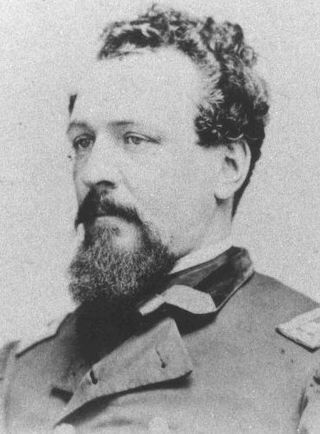
James Gwyn was an officer in the Union Army during the American Civil War. He immigrated at a young age from Ireland in 1846, initially working as a storekeeper in Philadelphia and later as a clerk in New York City. At the onset of the war, in 1861, he enlisted and was commissioned as a captain with the 23rd Pennsylvania Volunteer Infantry. He assumed command of the 118th Pennsylvania Regiment in the course of the war. Gwyn led that regiment through many of its 39 recorded battles, including engagements at Seven Pines, Fredericksburg, Shepherdstown, Five Forks, Gettysburg, and Appomattox Court House.
















